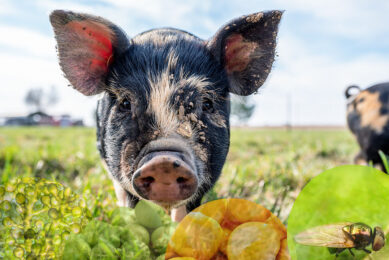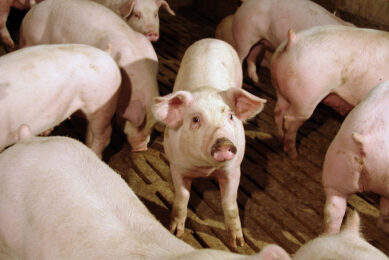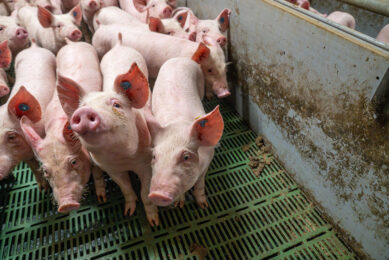Tryptophan reduces aggressiveness in pigs
Feeding the amino acid tryptophan to young female pigs as part of their regular diet makes them less aggressive and easier to manage, according to a study by Agricultural Research Service (ARS) scientists and cooperators.
The tryptophan-enhanced diet reduced aggression and overall behavioural activity among young female pigs during the 8-month study.
Tryptophan, which is only acquired through diet, is the precursor for the calming cerebral neurotransmitter serotonin.
Keeping swine calm is important, because aggressive behaviour can harm them and increase feed and medical costs for producers.
Persistent aggression in pigs can cause chronic stress, leading to poorer welfare, increased disease susceptibility and reduced growth and efficiency.
The study was carried out at the ARS Livestock Behaviour Research Unit in West Lafayette, Indiana, USA.
The supplemented diet raised blood concentrations of tryptophan in 3-month-old females by 180%, and by 85% in 6-month-old females, resulting in calmer animals, mainly at the younger age.
In the study, a diet with 2.5 times the normal amount of tryptophan was fed for one week to grower pigs (3 months old) and finisher pigs (6 months old).
Another group of pigs received a normal diet. Behavioural activity and aggressiveness were measured before and after the seven days of diet supplementation.
Intruder pig triggers aggression
To test aggression, researchers put an "intruder" pig in the pen until an aggressive interaction was triggered or for a maximum of five minutes.
Pigs receiving the high-tryptophan diet showed less aggression—fewer attacked the intruder, and those that did attack were slower to do so—compared with the animals that didn’t get the supplement.
Pigs form social groups that, over time, form stable hierarchies or "pecking orders." However, when new individuals are introduced, aggression is used to re-establish a new hierarchical order.
If repeated changes in group composition occur, persistent aggression may arise, sometimes leading to physical injury and acute stress.
A tryptophan-enriched diet may help producers avoid these problems, especially when groups of pigs are mixed together.
The research was published in the journal Applied Animal Behaviour Science.
Join 26,000+ subscribers
Subscribe to our newsletter to stay updated about all the need-to-know content in the feed sector, three times a week. Beheer
Beheer









 WP Admin
WP Admin  Bewerk bericht
Bewerk bericht